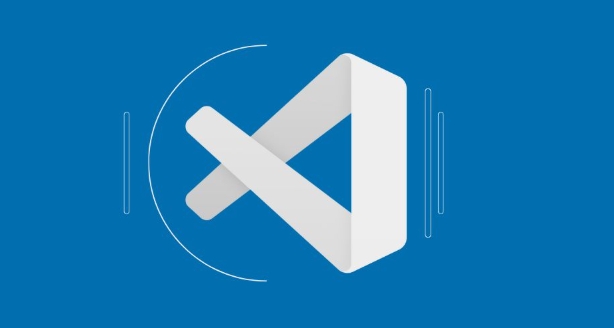Setting GOPATH when configuring a Go environment is key, especially in VSCode, it ensures clear project structure and smooth dependency management. 1. First, confirm whether the Go environment is installed correctly. Run go env to view GOPATH and GOROOT. If you use Go 1.11 and go modules, the GOPATH function will be weakened but may still be dependent on some tools. 2. Install the official Go plug-in and configure the workspace, open the .go file and install auxiliary tools, and enable Go: Use Language Server by setting to reduce dependence on GOPATH. 3. If you need to customize GOPATH, you can add GOPATH and PATH through the global settings or shell configuration file, or partially override in the VSCode settings. 4. If VSCode cannot recognize GOPATH, run go env GOPATH to confirm the settings, restart VSCode, check the remote development environment settings, or reset the Go configuration.

When configuring a Go environment, setting up GOPATH is one of the key steps. Correctly configuring GOPATH in VSCode can ensure clear project structure and smooth dependency management. If you find that the code cannot be automatically completed, the package cannot be found, or the go mod does not take effect, it is likely that something is wrong with GOPATH or related settings.

1. Confirm that the Go environment is installed correctly
Before starting configuration, make sure that Go is installed correctly in your system and that the basic configuration of environment variables is completed.
- Run
go envin the terminal and viewGOPATHandGOROOTin the output:-
GOROOTis the Go installation directory (usually automatically set) -
GOPATHdefaults to$HOME/go(Mac/Linux) or%USERPROFILE%\go(Windows)
-
If you are using Go 1.11 and above and enable
go modules, then the role of GOPATH has been weakened, but some toolchains may still rely on it.
2. Install the Go plug-in and configure the workspace
VSCode requires the installation of the officially recommended Go plug-in to support smart prompts, jump definitions and other functions.
- Open VSCode, click on the extension store to search for "Go" and install the plugin maintained by the Go team
- After the installation is completed, open a
.gofile. VSCode will prompt you to install some auxiliary tools (such as gopls, gofmt, etc.). It is recommended to install them all.
Where to configure GOPATH:

- If you use a module (
go.mod), you can turn off the mandatory requirements for GOPATH in the settings:- Open settings (Ctrl, /Cmd,)
- Search
Go: Use Language Server - Check Enable so that it can develop normally even if GOPATH is not strictly set.
3. Set custom GOPATH (optional)
If you want to place your project in a specific directory instead of the default $HOME/go , you need to manually set GOPATH:
-
Global settings (affect all projects):
- Edit system environment variables and add
GOPATH=/your/custom/path - Or add it in the shell configuration file (
.bashrc,.zshrc,.bash_profile):export GOPATH=$HOME/your-go-workspace export PATH=$PATH:$GOPATH/bin
- Execute
source ~/.zshrc(or corresponding file name) to make the changes take effect
- Edit system environment variables and add
-
VSCode internal settings (local override):
- Open VSCode settings
- Search
Go: Gopath - Enter the path you want to use (for example
/Users/username/dev/go)
Note: If you use
go modules, you can not rely on GOPATH, but if some old projects are still based on the GOPATH structure, this setting is very important.
4. Check whether VSCode recognizes GOPATH
Sometimes, even if GOPATH is set, VSCode is still "invisible". At this time, you can try the following methods to troubleshoot:
- Run
go env GOPATHin VSCode terminal to confirm that the output is consistent with what you expect - Close VSCode, check after restart
- If you use Remote Development (Remote - SSH), make sure that the GOPATH on the remote server is also set correctly
If you still have problems, you can try resetting the Go settings of VSCode, or rebuilding after deleting .vscode/settings.json .
Basically that's it. As long as you make sure that the Go environment itself is fine, and then you can write the code smoothly with the VSCode plug-in settings.
The above is the detailed content of How to configure Go path in VSCode?. For more information, please follow other related articles on the PHP Chinese website!

Hot AI Tools

Undress AI Tool
Undress images for free

Undresser.AI Undress
AI-powered app for creating realistic nude photos

AI Clothes Remover
Online AI tool for removing clothes from photos.

Clothoff.io
AI clothes remover

Video Face Swap
Swap faces in any video effortlessly with our completely free AI face swap tool!

Hot Article

Hot Tools

Notepad++7.3.1
Easy-to-use and free code editor

SublimeText3 Chinese version
Chinese version, very easy to use

Zend Studio 13.0.1
Powerful PHP integrated development environment

Dreamweaver CS6
Visual web development tools

SublimeText3 Mac version
God-level code editing software (SublimeText3)

Hot Topics
 How to change the default terminal in vscode settings?
Jul 05, 2025 am 12:35 AM
How to change the default terminal in vscode settings?
Jul 05, 2025 am 12:35 AM
There are three ways to change the default terminal in VSCode: setting through a graphical interface, editing settings.json file, and temporary switching. First, open the settings interface and search for "terminalintegratedshell" and select the terminal path of the corresponding system; secondly, advanced users can edit settings.json to add "terminal.integrated.shell.windows" or "terminal.integrated.shell.osx" fields and escape the path correctly; finally, you can enter "Terminal:SelectD through the command panel
 VSCode debugger for Java setup guide
Jul 01, 2025 am 12:22 AM
VSCode debugger for Java setup guide
Jul 01, 2025 am 12:22 AM
The key steps in configuring the Java debugging environment on VSCode include: 1. Install JDK and verify; 2. Install JavaExtensionPack and DebuggerforJava plug-in; 3. Create and configure the launch.json file, specify mainClass and projectName; 4. Set up the correct project structure to ensure the source code path and compilation output are correct; 5. Use debugging techniques such as Watch, F8/F10/F11 shortcut keys and methods to deal with common problems such as class not found or JVM attachment failure.
 How do I resolve 'command not found' errors in the VS Code terminal?
Jul 04, 2025 am 12:50 AM
How do I resolve 'command not found' errors in the VS Code terminal?
Jul 04, 2025 am 12:50 AM
1. Confirm whether the command is installed 2. Check the terminal shell type 3. Update the PATH environment variable 4. Restart VSCode or terminal. When you enter a command in the VSCode terminal, you should first check whether the command has been installed correctly and can be verified through other terminals of the system; secondly, confirm the shell type used by VSCode and check its configuration file; then make sure that the path where the command is located has been added to the PATH environment variable, and manually add and reload the configuration if necessary; finally close and reopen the terminal or restart VSCode to make the changes take effect.
 How do I use VS Code's settings sync feature?
Jul 03, 2025 am 12:43 AM
How do I use VS Code's settings sync feature?
Jul 03, 2025 am 12:43 AM
TosyncVSCodesettingsacrossdevices,signinwithaGitHuborMicrosoftaccount,customizewhatgetssynced,andmanuallytriggersyncwhenneeded.First,openVSCodeandsigninviatheprofileiconorCommandPaletteusing"Sync:TurnonSync".Next,choosewhattosyncsuchassetti
 Fixing 'Timed out waiting for the debugger to attach' in VSCode
Jul 08, 2025 am 01:26 AM
Fixing 'Timed out waiting for the debugger to attach' in VSCode
Jul 08, 2025 am 01:26 AM
When the "Timedoutwaitingforthedebuggertoattach" issue occurs, it is usually because the connection is not established correctly in the debugging process. 1. Check whether the launch.json configuration is correct, ensure that the request type is launch or attach and there is no spelling error; 2. Confirm whether the debugger is waiting for the debugger to connect, and add debugpy.wait_for_attach() and other mechanisms; 3. Check whether the port is occupied or firewall restricted, and replace the port or close the occupied process if necessary; 4. Confirm that the port mapping and access permissions are configured correctly in a remote or container environment; 5. Update VSCode, plug-in and debug library versions to solve potential
 How do I configure VS Code to automatically save files?
Jul 01, 2025 am 12:47 AM
How do I configure VS Code to automatically save files?
Jul 01, 2025 am 12:47 AM
Yes,VSCodecanautomaticallysavefiles.Toenableauto-save,gotoFile>AutoSave(Windows/Linux)orCode>AutoSave(macOS),andcheckthebox.Youcanalsosetittosaveonfocuschangebyadding"files.autoSave":"onFocusChange"tosettings.json.Formorecon
 What are VS Code workspaces, and how are they used?
Jul 10, 2025 pm 12:33 PM
What are VS Code workspaces, and how are they used?
Jul 10, 2025 pm 12:33 PM
VSCode workspace is a .code-workspace file that saves project-specific configurations. 1. It supports multi-root directory, debug configuration, shortcut key settings and extension recommendations, and is suitable for managing different needs of multiple projects. 2. The main scenarios include multi-project collaboration, customized development environment and team sharing configuration. 3. The creation method is to save the configuration through the menu File>SaveWorkspaceAs.... 4. Notes include distinguishing between .code-workspace and .vscode/settings.json, using relative paths, and avoiding storing sensitive information.
 How to set environment variables for the terminal in VS Code settings on Linux?
Jul 06, 2025 am 12:23 AM
How to set environment variables for the terminal in VS Code settings on Linux?
Jul 06, 2025 am 12:23 AM
There are two ways to set environment variables for VSCode terminals on Linux: one is to use the terminal.integrated.env.linux configuration item to define variables that are only used by VSCode; the other is to modify the shell configuration file to take effect globally. 1. In VSCode, add variables such as "MY_VAR":"my_value" by setting the terminal.integrated.env.linux field. This method only affects the VSCode terminal; 2. Modify shell configuration files such as ~/.bashrc or ~/.zshrc and add exportMY






